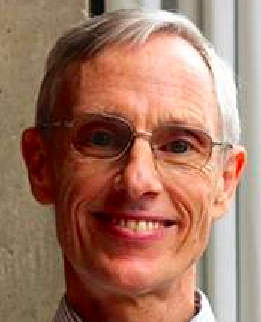A Student’s Unrecognized Potential
Stanley Sterenberg has kindly provided this encouraging story about the sometimes unrecognized potential of a student. He writes, “Alexa is interested in inspiring students, especially young girls pursuing STEM careers, and is eager that what she and I refer to as ‘our story’ be posted.”
Why We Teachers Need to be More Humble
I was a math teacher for 21 years, at various points teaching grades 4 through 12. One year, while teaching an advanced seventh-grade class, I taught a student named Alexa. Alexa was, in my opinion, a solid student, but by no means an outstanding one.
Two years later, I observed a ninth-grade geometry class where Alexa was making a presentation on a topic she had researched. Despite my Ivy League college math degree, I could barely follow the details of her talk, and I left thinking two things: Alexa was a brilliant math student, AND, how could I NOT have seen this two years earlier?
Years went by and Alexa went off to college. I lost track of her, but I saw her again at her sister’s graduation, just after Alexa had finished her junior year. I told her the story of watching her ninth grade presentation, how impressed I was, and how embarrassed I felt for not having recognized her obvious talent when I was her teacher in seventh grade. She smiled and thanked me.
A year later. I received an email from Alexa informing me that she had just been accepted to Columbia University’s PhD physics program. I was both delighted and stunned. My thoughts raced back almost 10 years to her seventh grade class. If someone had asked me then if Alexa would one day earn a PhD in physics, I would frankly have doubted it.
Like a bolt of lightning, I realized we teachers see students for a relative moment of their lives, as they are still evolving. Who can know for sure what’s inside them waiting to blossom?
Often, as teachers, we think we can pigeon hole each of our students, ranking them from strongest to weakest, and we are reasonably confident and comfortable with that assessment. What I learned from Alexa is that this is not only wrong, but that it can be dangerous, especially if we let it influence how we interact with our students.
Over the years, I have shared this story with faculty, parents, and the most important audience of all, students. To my fellow faculty, I have stressed that we need to be more humble when evaluating our students, that we should not presume to know with certainty what lies ahead for each of them.
To parents, I have recommended patience when their children struggled. Material that at first seems confusing, can often seem almost trivial in retrospect, once the student has had a chance to sort through, discuss, and eventually master, the various concepts underlying that material.
To students, I have emphasized that they are often not aware of their own potential. They need to be encouraged to have the patience to wrestle with new material, to engage it, to learn from their errors, and to seek help as they sort through the most challenging parts.
I retired from teaching a few years ago, but whenever I talk about education, I invariably tell this story. I want everyone to hear it, especially young people. I still recall, with a smile, the time a sixth-grade parent told me about her daughter, who after hearing this story at school, had come home and announced that she was going to become a scientist. After knowing Alexa, I believe she will.
 Welcome to my blog. I also have a blog at the
Welcome to my blog. I also have a blog at the